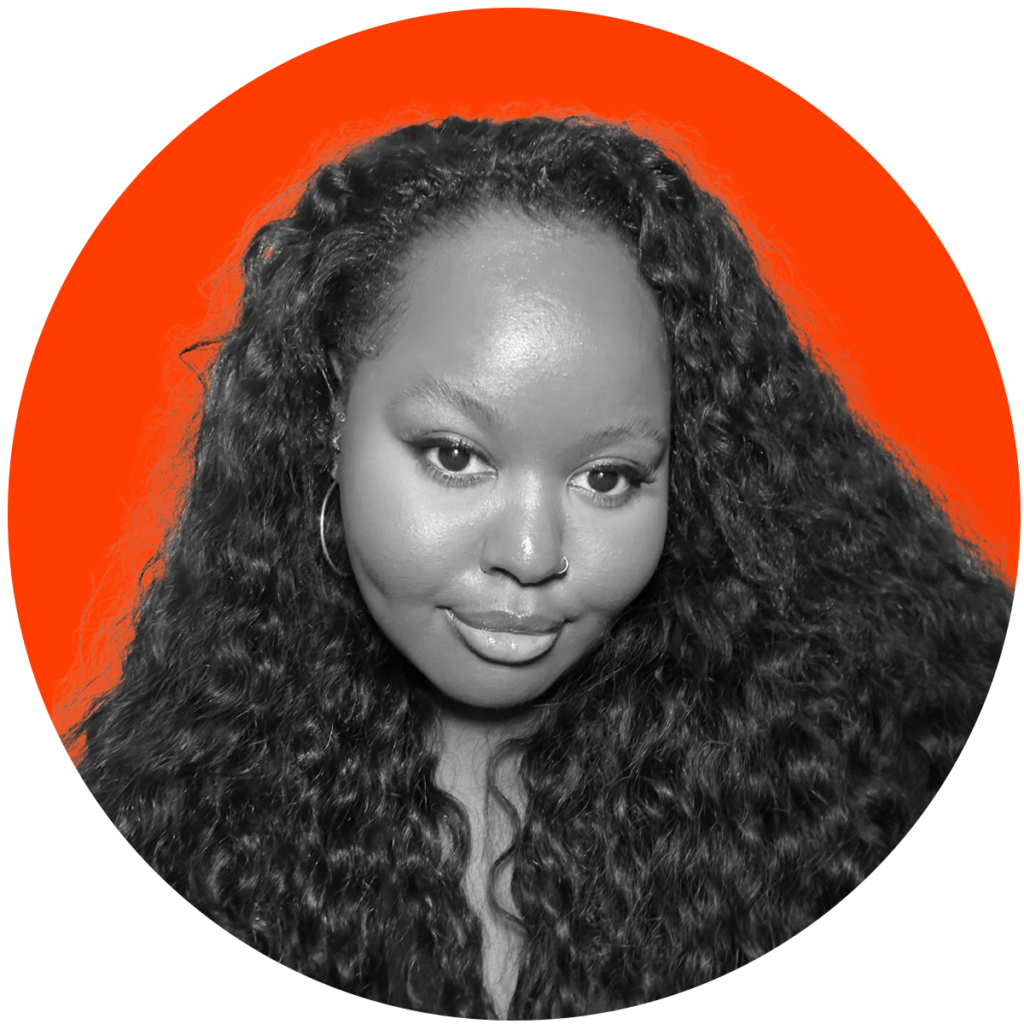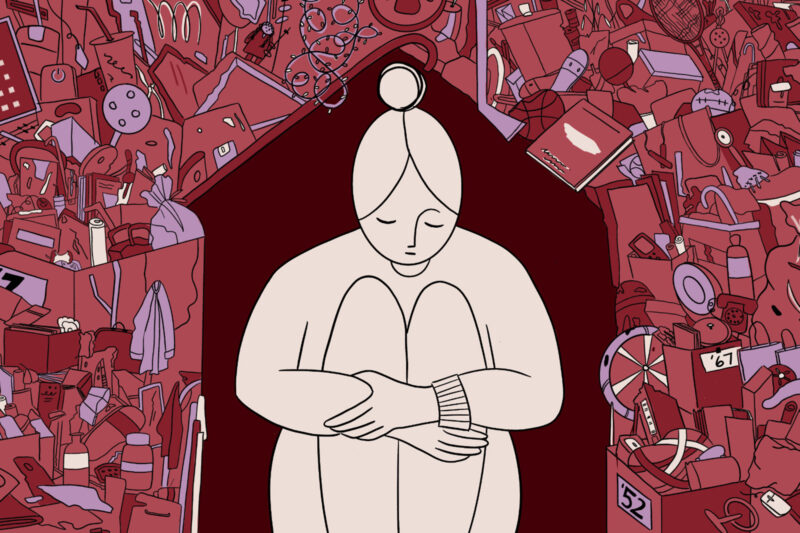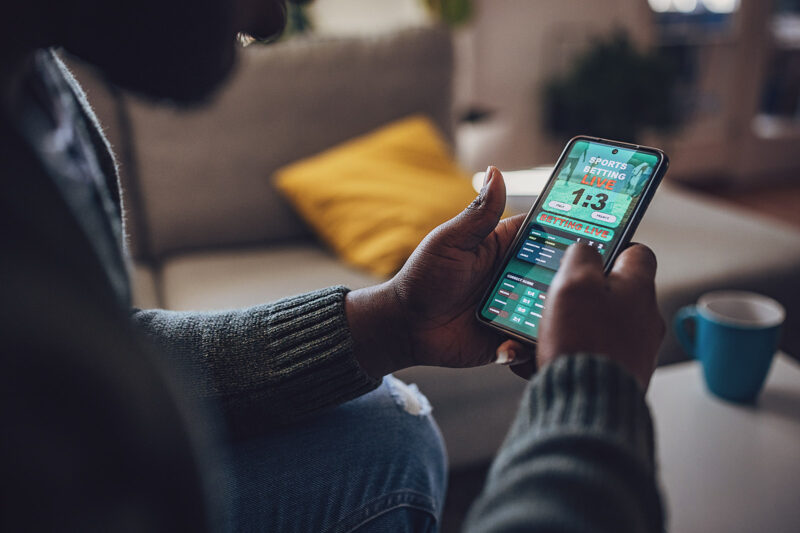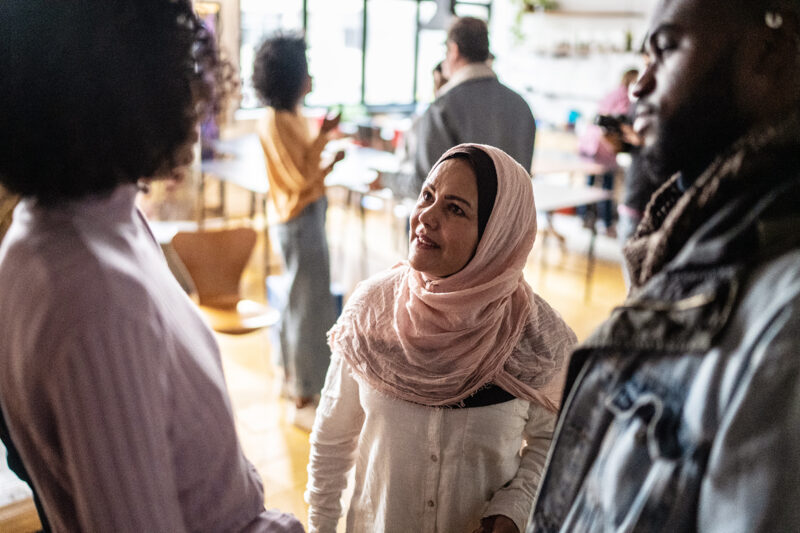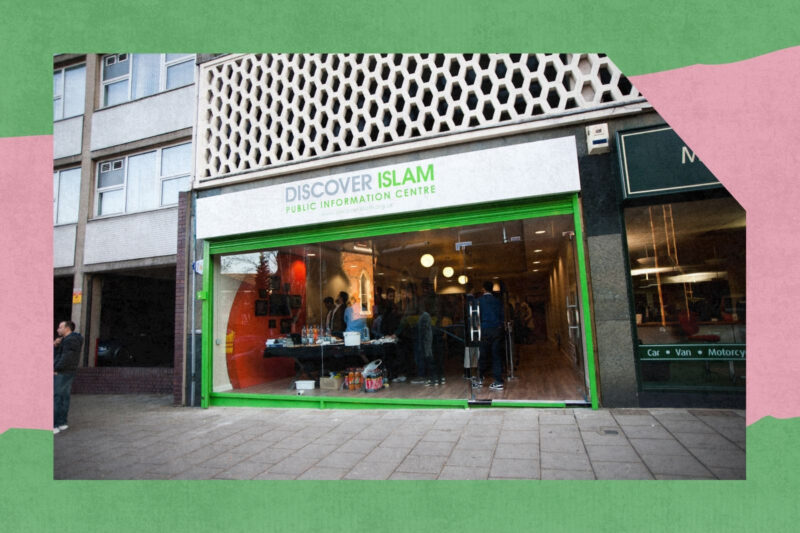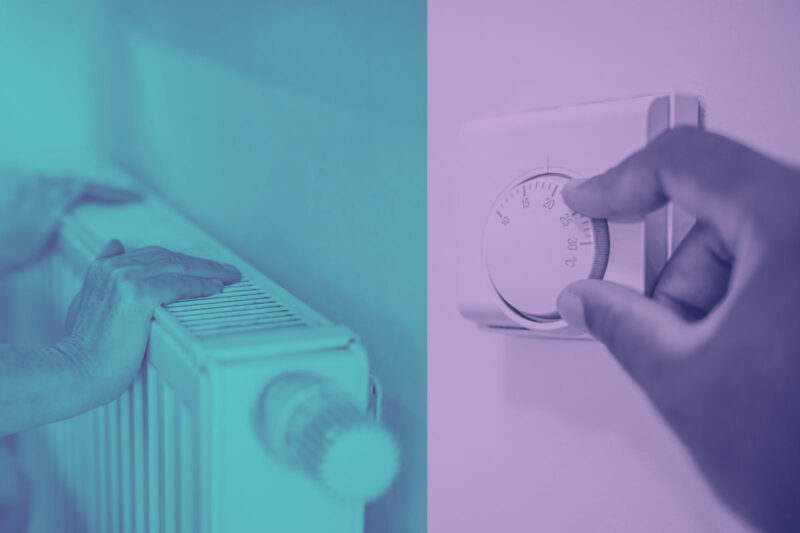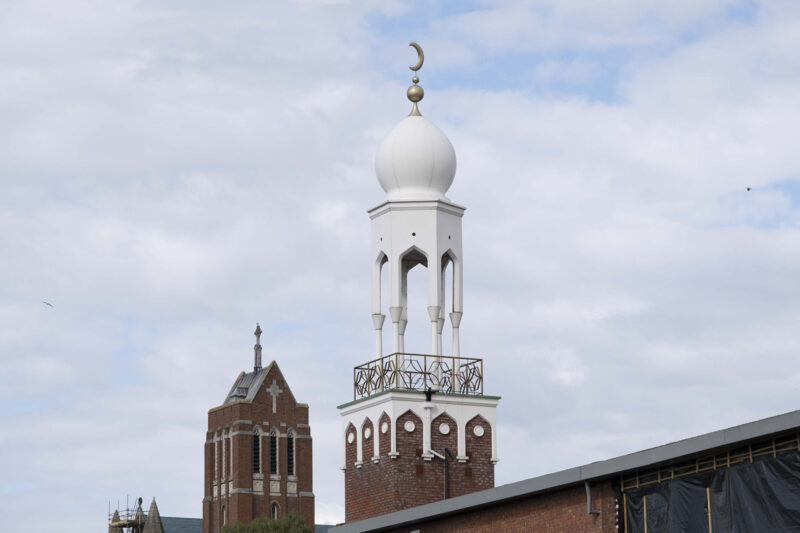Coffee Afrik: the east London community group ‘rooted in joy, Islam and love’
Keeping unhoused people warm in winter, and supporting local women and young people, a grassroots organisation is bringing its own vision of community to the UK capital
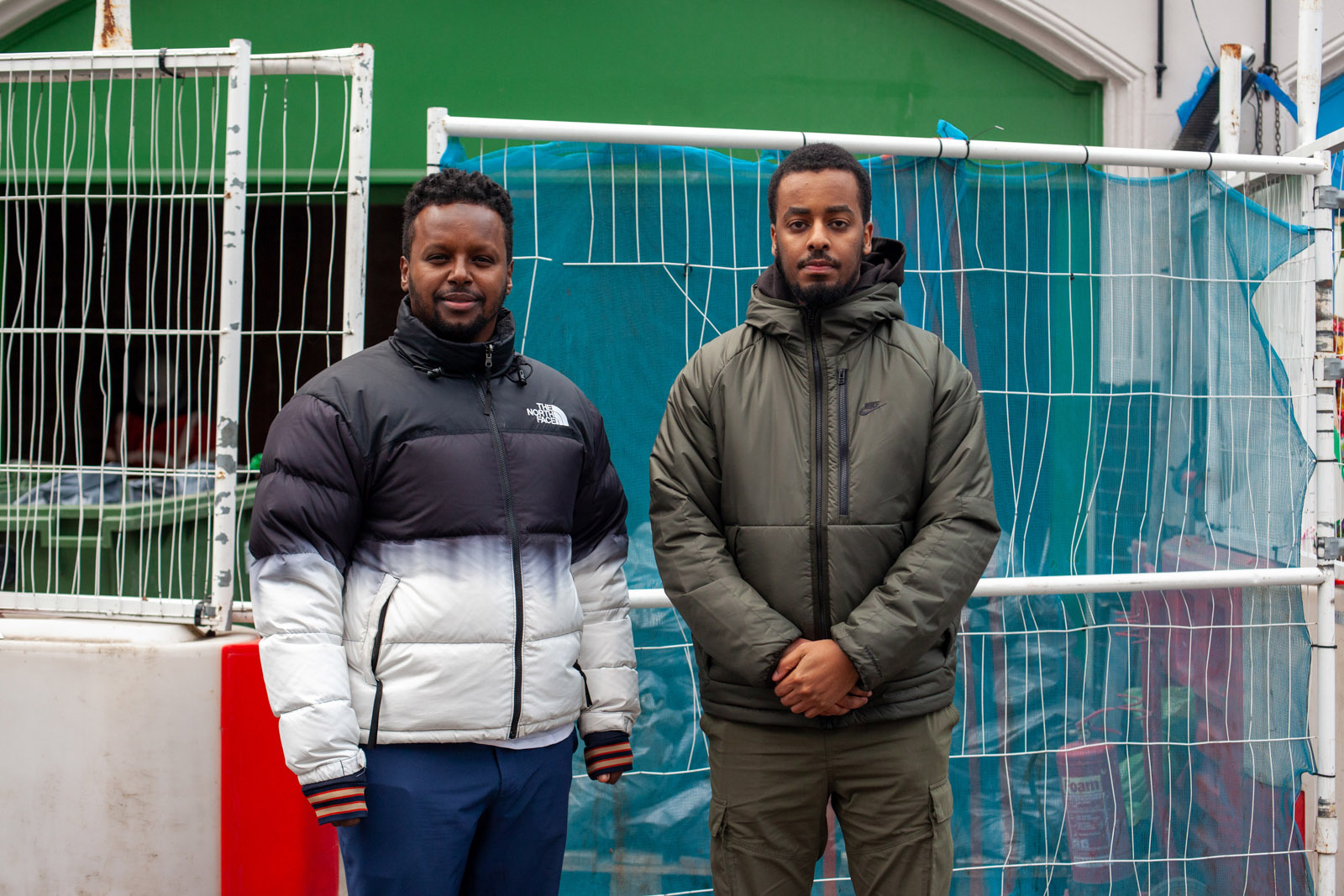
Outside the doorway of a Sainsbury’s supermarket in Bethnal Green, east London, shoppers hurry past a makeshift tent tucked beside a trolley railing. Its occupants aren’t there, but Mahad Omar and Abdirahim Hassan place pairs of gloves and thick blankets at its entrance before they leave.
“Usually there’s a woman and two guys staying here,” Omar says. “I don’t know where they are now, but I’ve delivered hot food to them a few times. This is their setup.”
It’s an icy January afternoon. The kind of day when people really need help from Coffee Afrik, a grassroots community group that supports local people experiencing drug addiction and homelessness. Hassan, founder of the organisation, and Omar, who works as a community navigator, connecting vulnerable people with services and support, have just started a shift handing out supplies to keep rough sleepers warm overnight.
Bethnal Green sits within the London borough of Tower Hamlets. Research by the anti-poverty charity Trust for London has found that Tower Hamlets has a higher than average poverty rate compared to England as a whole and from 2023 to 2024, 498 people were seen sleeping rough by outreach workers.
Tower Hamlets is a place of stark contrasts. In the shadow of the gleaming financial district of Canary Wharf lie neighbourhoods with some of the highest rates of child poverty in London. Research by the Joseph Rowntree Foundation, published in January, has found that around 50% of children in Bethnal Green are living below the poverty line, defined as when a household’s income is below 60% of the national median after housing costs.
“You have this situation where people are poorer but you’ve got million-pound apartments being bought at the top of the road,” says Hassan. “Deprivation, housing and inequalities are colliding in this part of London.”
As in many other places, the link between deprivation and drug use is clear. According to Tower Hamlets council, the borough has the highest number of people in treatment for drug use in all of London.
Omar explains that much of his work at Coffee Afrik involves helping people struggling with addiction to access help. “I’m often their first point of contact,” he says.
Launched in 2018, Coffee Afrik is, Hassan says, “rooted in joy, Islam and love”. The organisation started out as a single crisis cafe with a community garden and food co-op that opened as a safe space for people to get a hot meal. It now comprises 28 full-time staff and 18 volunteers working on a variety of projects including mental health, drugs support and youth engagement. According to its annual impact update for 2024, the group has also helped more than 3,000 young people, and an additional 4,400 via its Tower Hamlets and Hackney women’s groups.
Coffee Afrik’s drug outreach initiative is funded by Project ADDER — which stands for Addiction, Diversion, Disruption, Enforcement and Recovery — a national programme in England and Wales set up to prevent drug-related crime and reduce associated harms.
As we stop at a nearby local shop to stock up on blankets and gloves, Hassan explains that Coffee Afrik’s only contractual requirement with ADDER is to provide drug outreach. Distributing food and bedding to keep rough sleepers warm, he says, is an extra touch that brings “added value to the community”.
“People really appreciate it because there’s no one else doing it,” Omar adds. “There are a lot of people sitting outside shops hoping for passersby to give them food out of the kindness of their heart. Sometimes I walk by and they’ve got nothing. It makes me feel bad.”
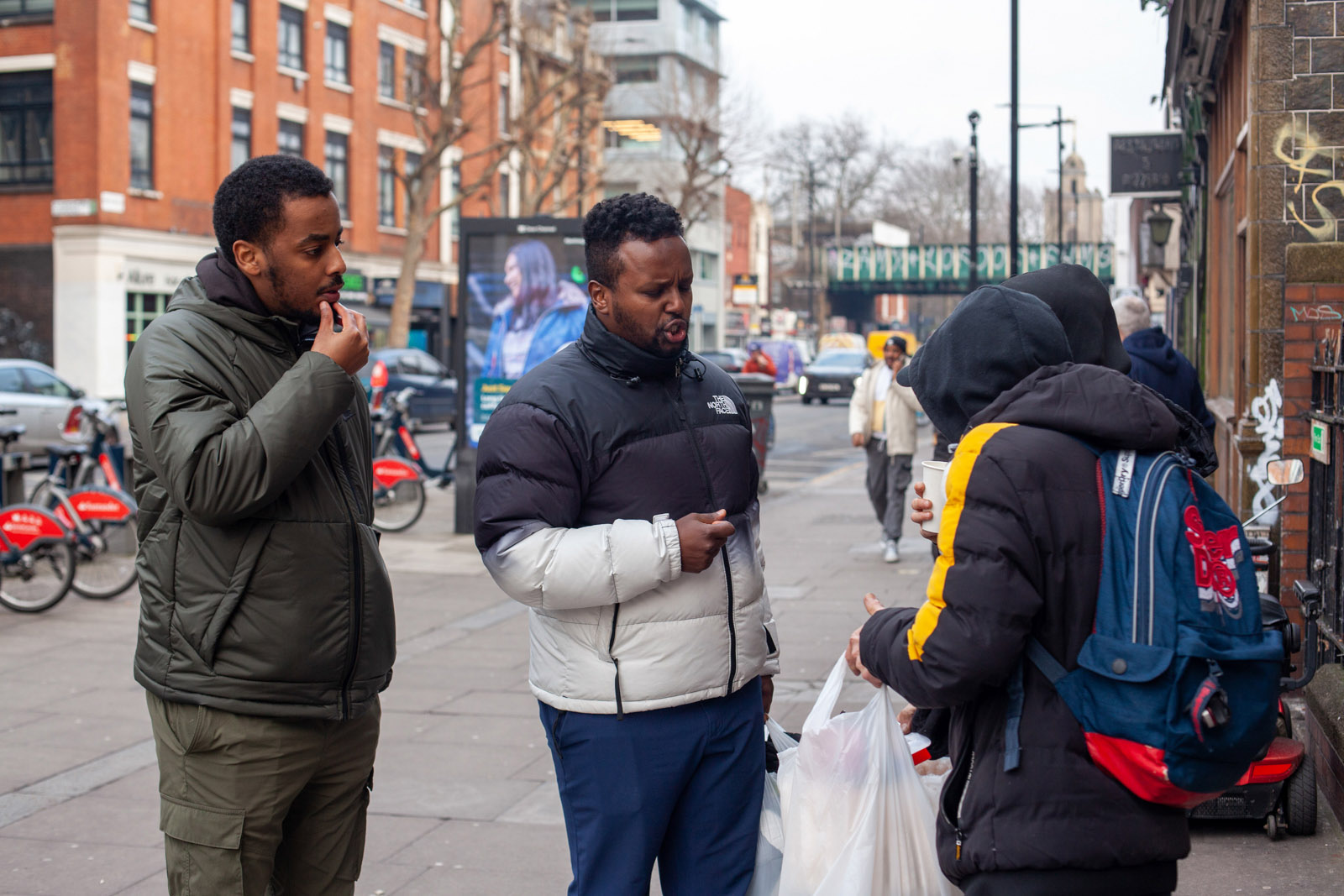
Omar, a self-described “Tower Hamlets native”, describes his work as deeply personal. “Some of the people that I help, I’ve seen growing up and turning into addicts. They’re good people when you sit down and talk to them.”
Hassan is open about how his own experiences with homelessness and drug use have influenced his work. “It explains why I’m so passionate about this idea of saving, working with, repairing, caring, loving and sharing with communities,” he says.
“Within Islam, we know that people can be saved and supported, and that Allah, our God, is all-forgiving. So we have to embody this. We have to embody the sunnah. We have to embody our faith in a way that really is about helping people, especially the people that are most marginalised or troubled.”
As we walk from Bethnal Green to Whitechapel, a biting wind whips around us. Hassan starts talking about the severe weather emergency protocol (Swep) in Tower Hamlets. Swep is used by councils during extreme weather to prevent people dying on the streets. It includes providing shelter for rough sleepers when temperatures fall below 0C or an ice and snow warning is issued. Hassan describes the borough’s implementation as “absolutely useless”.
“Every year, we’ve had to fight and go around the area, use social media, advocate and create lots of good trouble, but we shouldn’t have to do that,” he says. “That’s something that really is a big structural issue, and not just in Tower Hamlets but across London.
“It’s really unfortunate. For years we’ve challenged the council,” he adds. “We can talk all day about structural issues but people are dying as a result of that incompetence.”
Research published in 2024 by the Museum of Homelessness found that 1,474 unhoused people across the UK died in 2023 and that 37% of those deaths were drug-related. It also noted that “extreme isolation, exposure to inclement weather and inability to access help” all increase the risk of drug overdose among rough sleepers.
Coffee Afrik has campaigned for culturally sensitive approaches to mental healthcare in Tower Hamlets, including a digital support group for Somali clients to speak with a Somali therapist over Zoom. The organisation has also transformed services for young people, with weekly youth hubs. Its Young Black Men project also made headlines in 2022, when members ran into a burning building to rescue vulnerable people.
En route, Omar and Hassan stop to speak to a man and woman they believe might need help. The man explains that he has recently been released from prison and has no home and no support system, while the woman says that her father has just died and that she has nowhere to live.
“These are very traumatic things that people are going through and without the right support system, they just slip through the cracks,” Omar says.
“We’re here to help, whatever support they need at any given time. We’re just here to listen and guide them through these experiences. Some of the people that I deal with, the stuff that they deal with, it’s a heavy load. This work keeps you humble. It makes you appreciate how lucky you are.”
The next Thursday, at Coffee Afrik’s Hackney women’s hub, the atmosphere could not be more different. The group meets three times a week for group activities including Qur’an study, English and Arabic lessons, exercise classes, sewing circles, tea and coffee sessions, and Friday-night dancing. My visit coincides with its quarterly social event with the Tower Hamlets sister branch.
Both groups offer a space for women from marginalised communities to find support, share experiences and build a sense of belonging. More than 50 women fill the room, balloons hang in each corner and a long table sits at the centre, spread with an array of dishes including slow-cooked lamb, grilled salmon and bariis iskukaris, a traditional Somali rice dish.
According to Katra Mahamoud, who leads the Tower Hamlets women’s hub, the group “feels like a big family”. She adds that, in addition to the many activities, the women involved also offer each other vital support on matters from healthcare to housing.
“Having a space is good because, otherwise, the ladies will just sit at home. They’re always very happy coming here. One week we were closed and they were like, ‘Why, please no,’” says Hackney group leader Sirad Sultan.
That same sense of community is at the heart of Coffee Afrik and the thing Hassan is most proud of. “We meet monthly for our team dinner and to catch up,” he says. “At the last one, I just sat at the table, watched and thought we’re doing something magical.”
 Newsletter
Newsletter

